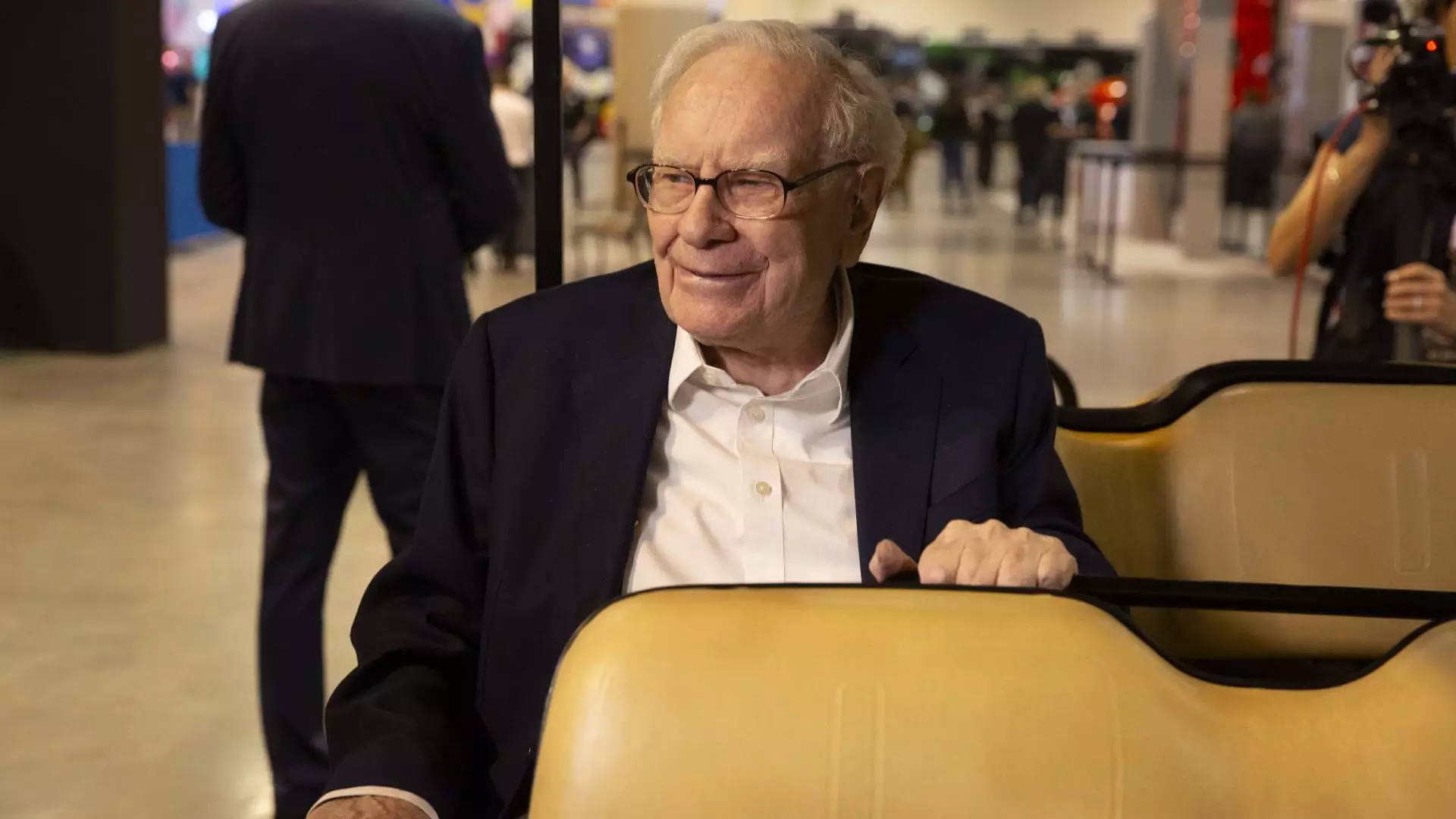Berkshire Hathaway recently reported remarkable operating earnings, much to the delight of investors who closely follow Warren Buffett’s investment conglomerate. The company, renowned for its diverse holdings—ranging from insurance giants like Geico to significant railroads such as BNSF—saw its Class A shares appreciate by 1.2% in premarket trading following the release of its latest earnings report. With an impressive operating profit leap of 71% to $14.5 billion in the last quarter, fueled largely by a staggering 302% increase in insurance underwriting profits, one might expect the shareholders to be equally enthusiastic about the company’s cash reserves. However, a deeper dive into the numbers reveals a mixed bag of signals concerning cash management and investment strategies.
Berkshire Hathaway’s cash reserves have swollen to a staggering $334.2 billion, an increase that raises questions about the conglomerate’s investment strategy moving forward. While Buffett assures stakeholders of his commitment to equities, the capital allocation strategy is coming under scrutiny. Despite the healthy operating margins, it appears that Berkshire is playing a waiting game, with Buffett highlighting a lack of attractive investments amidst the prevailing high market valuations. The notable sell-off of its largest equity positions in Apple and Bank of America over the past nine months illustrates a conservative approach that may frustrate investors eager for aggressive growth.
While some shareholders express concern over this extensive cash pile, others share a more patient outlook, trusting that Buffett’s legendary conservative investment style will prepare Berkshire for prime opportunities amidst economic downturns. Investment experts argue that while the current situation might seem stagnant, it ultimately positions Berkshire for substantial strategic acquisitions when market conditions eventually shift. The juxtaposition between Buffett’s cash accumulation and his steadfast commitment to equities presents a paradox that calls for careful consideration.
Berkshire’s recent performance showcases a stark decline in investment gains, dropping to $5.2 billion from an impressive $29.1 billion in the same quarter the previous year. The company’s sustained strategy of selling equities—marking the ninth consecutive quarter where more shares were sold than purchased—confirms Buffett’s cautiousness. This significant decline in investment income might be perceived as a bearish signal, challenging the traditional expectation of Berkshire as a growth-oriented investment vehicle.
Buffett’s candid acknowledgment of high valuations as a deterrent to buying into the market resonates with many seasoned investors. He reassures stakeholders of his confidence in successor Greg Abek, further emphasizing the need for prudent investment choices over impulsive buying sprees. This reflects a possible paradigm shift in Berkshire’s investment philosophy where cash is viewed as a vital tool for future maneuvers rather than immediate deployment.
Long-Term Vision vs. Short-Term Market Reactions
The stock market’s variability continues to be a point of contention as Berkshire Hathaway navigates its financial strategy. Although 2024 was a stellar year with a 25.5% stock increase—outperforming the S&P 500 for the first time since 2021—the overarching market dynamics require shareholders to contemplate the long-term implications of Buffett’s strategies. The stagnation in stock buybacks indicates a deeper narrative at play; it represents Buffett’s deliberate cautiousness over populist financial strategies that embrace immediate expenses in favor of long-term security.
Investors like Bill Stone, who appreciate this cautious narrative, believe that positioning Berkshire to withstand potential market disturbances will ultimately pay off by enabling the conglomerate to capitalize on attractive opportunities that arise during financial crises. This prudent approach may not yield immediate rewards but aligns with Buffett’s long-standing philosophy of value investing and purchasing when conditions are most favorable.
With the recent earnings report laying bare both impressive operational results and a perplexing accumulation of cash, Berkshire Hathaway’s future trajectory seems to be a blend of opportunism and restraint. The underlying sentiment among many insiders touts a cautious optimism—while shareholders may have to exhibit patience, the potential for substantial gains in the long run remains intact under Buffett’s stewardship. As we look ahead, it will be intriguing to monitor how Berkshire maneuvers its vast financial resources in a world where investment landscapes fluctuate like the tides, and timing becomes an essential element of successful investment management.

